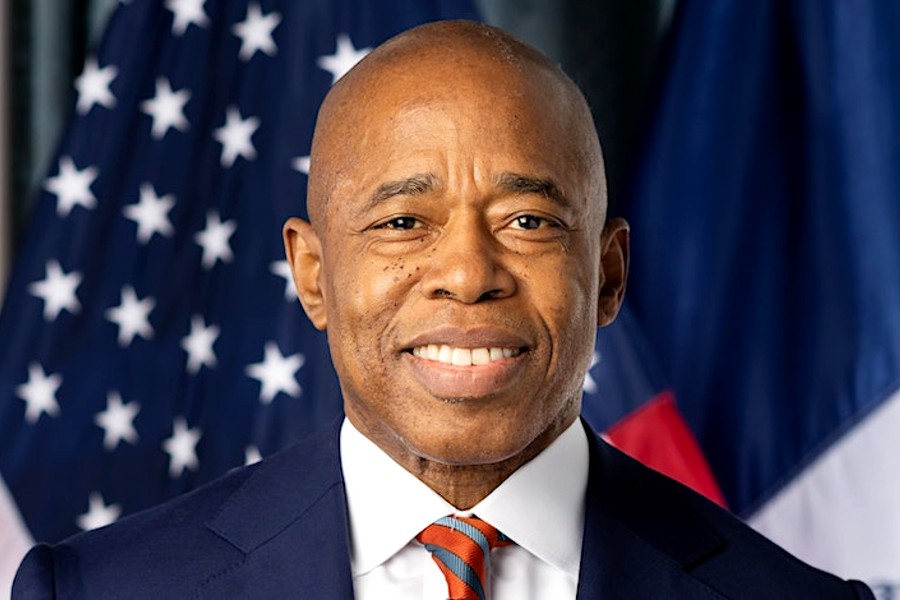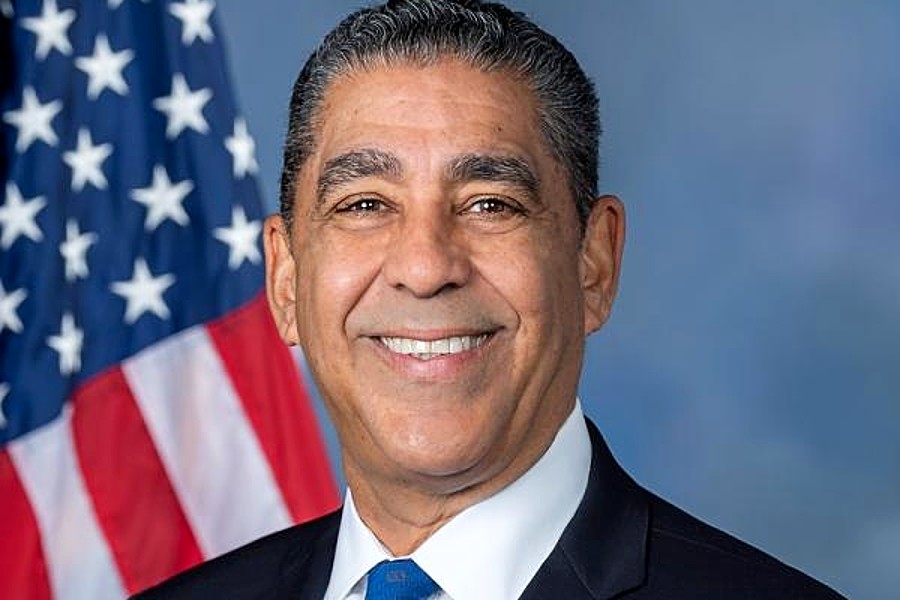
U.S. Senator Kirsten Gillibrand and U.S. Representative Grace Meng led 45 of their colleagues in writing a bicameral letter to Federal Communications Commission (FCC).
Chair Jessica Rosenworcel urged her to examine an expansion of the languages that wireless carriers must support for Wireless Emergency Alerts (WEAs), in order to help close gaps in critical information delivery for non-English and non-Spanish speaking communities.
WEAs are issued by federal, state, tribal, territorial, and local public alerting authorities to notify the public about severe weather events, AMBER Alerts and other emergencies. In 2016, the FCC published a rule requiring wireless carriers who participate in transmitting WEAs to support Spanish-language alert messages but fell short of mandating other languages. During extreme weather, the ability to receive warnings can save lives. However, for many non-English or non-Spanish speakers, the lack of access to alerts in a language they can understand may lead to missed evacuations, injuries, or even loss of life.
“Language barriers should not be the difference between life and death during an emergency,” said Senator Gillibrand. “Lives are put on the line when you’re not able to communicate crucial information about impending inclement weather events, stay-at-home orders, AMBER alerts, and other emergencies, and I look forward to working with the FCC on this important matter.”
“In times of emergencies, people need to be able to receive alerts in the language that is most accessible to them,” said Congresswoman Meng. “Currently, the Wireless Emergency Alerts (WEAs) system does not support alerts in languages other than English or Spanish. That is why I am leading an effort, alongside Senator Gillibrand, to expand the number of languages for WEAs. Queens is the world’s borough with many different languages spoken here. In many homes, English is not the primary language, and having WEAs accessible in more languages would help keep people better protected and informed of severe weather warnings, missing persons alerts, shelter in place orders and other emergency announcements.”
“The Asian American community has always been an integral part of this country, and the 2020 census confirms that we are a community that will only continue to grow. It is imperative for our government to take action now to reduce the barriers of access our community has historically faced,” said Jo-Ann Yoo, Executive Director of the Asian American Federation. “I am grateful to Governor Hochul, who met with the victims of Hurricane Ida who first raised this issue, and to Attorney General James who amplified the language gap problems, and to Senator Gillibrand and Congresswoman Meng who are leading the charge in Washington, D.C. for this critical change. On behalf of our community, we thank all the members of Congress who have signed onto this letter recognizing the need for language accessibility, especially in lifesaving services such as Wireless Emergency Alerts. This is not just a much-needed matter of representation, but vital one that will save the lives of Asian Americans.”
The lawmakers also wrote that as the United States becomes more diverse and cities and regions such as New York City experience growing populations of Asian immigrants, “linguistic barriers faced by this community demonstrate a need for accessible emergency notifications so that non-English and non-Spanish speaking communities can be prepared for extreme weather events.”
In New York City, most all of the 13 victims who lost their lives from Hurricane Ida’s 2021 floodwaters were immigrants from Asia. Census data indicates that between 26% and 78% of households in the communities where these people perished speak languages other than English or Spanish at home. There are an estimated 1.3 million New Yorkers who have limited English proficiency and are not Spanish-language speakers.
In addition to Senator Gillibrand and Representative Meng, the bicameral letter was also signed by Senators Dianne Feinstein (D-CA), Bob Casey (D-PA), Mazie Hirono (D-HI), Ben Ray Luján (D-NM), Tammy Duckworth (D-IL), Alex Padilla (D-CA), Bob Menendez (D-NJ), and Jon Ossoff (D-GA), and Representatives Raúl Grijalva (D-AZ-7th), Salud Carbajal (D-CA-24th), Gregory Meeks (D-NY-5th), Jasmine Crockett (D-TX-30th), Eleanor Holmes Norton (D-DC), Yvette Clarke (D-NY-9th), Nydia Velázquez (D-NY-7th), Jerrold Nadler (D-NY-12th), Katie Porter (D-CA-47th), Suzanne Bonamici (D-OR-1st), Harlem’s Adriano Espaillat (D-NY-13th), Pramila Jayapal (D-WA-7th), Josh Harder (D-CA-9th), Juan Vargas (D-CA-52nd), Doris Matsui (D-CA-7th), Ed Case (D-HI-1st), Jamaal Bowman, Ed.D. (D-NY-16th), Nanette Diaz Barragán (D-CA-44th), Marilyn Strickland (D-WA-10th), Jill Tokuda (D-HI-2nd), Suzan DelBene (D-WA-1st), Dan Goldman (D-NY-10th), Sara Jacobs (D-CA-51st), Jim Costa (D-CA-21st), Jan Schakowsky (D-IL-9th), Marc Veasey (D-TX-33rd), Mark Takano (D-CA-39th), Kevin Mullin (D-CA-15th), Grace Napolitano (D-CA-31st), Jesús “Chuy” García (D-IL-4th), Jimmy Gomez (D-CA-34th), Susie Lee (D-NV-3rd), Andy Kim (D-NJ-3rd), Judy Chu (D-CA-28th), Lizzie Fletcher (D-TX-7th), Gerry Connolly (D-VA-11th), and Mary Gay Scanlon (D-PA-5th).
Read the full letter HERE and below:
Dear Chair Rosenworcel:
Wireless Emergency Alerts (WEAs) are an important lifeline for Americans. The Federal Communications Commission (FCC) requires that WEAs be distributed by wireless carriers in English and Spanish, however, there is no such requirement to assist the growing population of non-English and non-Spanish speakers with a different primary language. Lives are put at stake without this crucial information about impending inclement weather events, stay-at-home orders, AMBER alerts, and other emergencies.
According to the American Public Health Association (APHA), “Asians are the fastest growing racial group in the United States” “Census data demonstrates that Asian American populations are highly concentrated in coastal regions, so ‘flooding and storm surges associated with sea level rise increase risks for drowning, injury, and displacement.’” In the same study, APHA states that “some Asian American populations have low English proficiency rates, which can lead to difficulties accessing and receiving effective care… in 2014, 34 percent of Korean Americans, 29 percent of Vietnamese Americans, 19 percent of [Indian Americans], and 18 percent of Filipino Americans, and 10 percent of Japanese Americans surveyed reported poor communication with their physician.”
Additionally, a Pew Research Center study showed that “around six-in-ten Asian Americans (57 percent), including 71 percent of Asian American adults, were born in another country.” Of that percentage, only about 57 percent of the foreign-born Asian community were proficient in English. And even though a majority of the Asian community do speak English, two-thirds “speak a language other than English at home.”
When Hurricane Ida ravaged the eastern seaboard in 2021, many Asian Americans and their families were not given warnings in an accessible way because WEAs distributed by wireless carriers are required to be in English and Spanish but not in other languages— creating a language barrier. New York Attorney General Letitia James notes,
[The National Weather Service] sent several WEAs to all WEA-enabled mobile phones in the area warning of a flash flood emergency. Flash flooding from the storm caused 18 deaths in New York State; the majority of those victims were Asian immigrants and resided in communities with high rates of limited proficiency in English or Spanish, based on census data. However, the WEAs were only sent in English and Spanish.
This could happen anywhere in the United States. As mentioned in the Pew Research Center study, nearly half of Asian Americans live in the Western United States, putting them especially at risk of growing, intense wildfires and extreme heat we have seen in the West.
This risk could be further heightened as APHA states that “Asian Americans are 32 percent more likely than Whites to live in areas where heat-retaining hard surfaces cover more than half the ground, and more than half the population lacks access to cool shade-producing green space and tree canopy.”
With Asian Americans expected to be “the nation’s largest immigrant group by the middle of the century,” and the linguistic barriers faced by this community demonstrate a need for accessible emergency notifications so that non-English and non-Spanish speaking communities can be prepared for extreme weather events. This is understood by the FCC as well, with the FCC noting that “critical alert messages should be accessible to all” and that “alert originators have translated their alert messages into additional languages within the longer version of their alert, and can also include in their alert message an embedded URL that leads to a webpage where translations in multiple languages can be accessed.” This is a temporary solution, however, and with a rise in non-English and non-Spanish speakers we urge the FCC to examine mandating languages other than English and Spanish in WEAs.
We ask that you respond to the following questions by February 24, 2023, so that Congress may better understand how to address this matter:
1. Since FCC Order 16-127, have discussions of expansion of the language access in WEAs occurred in talks between the FCC and industry stakeholders? What has been the biggest concern from stakeholders? Does the FCC find any such concerns as being pertinent, probable, and pernicious?
2. Has the FCC studied the technical feasibility of the expansion of WEA languages beyond English and Spanish since FCC Order 16-127? If so, what were the findings of any such studies? If not, does the FCC plan on directing the Communications Security, Reliability, and Interoperability Council (CSRIC) to begin a study in the future?
3. What challenges did industry face implementing the Spanish language requirement for emergency alerts? What challenges would industry face implementing an additional language for emergency alerts, including languages that utilize a non-Roman alphabet?
4. Has the FCC taken comments or done outreach to growing, non-English and non-Spanish speaking minority groups?
Thank you for your time and we look forward to working with you in this matter.
Become a Harlem Insider!
By submitting this form, you are consenting to receive marketing emails from: Harlem World Magazine, 2521 1/2 west 42nd street, Los Angeles, CA, 90008, https://www.harlemworldmagazine.com. You can revoke your consent to receive emails at any time by using the SafeUnsubscribe® link, found at the bottom of every email. Emails are serviced by Constant Contact








